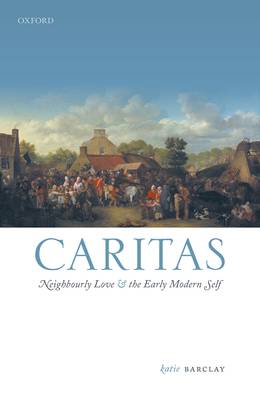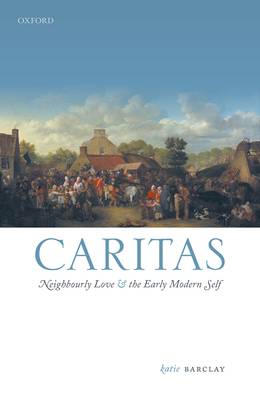
En raison d'une grêve chez bpost, votre commande pourrait être retardée. Vous avez besoin d’un livre rapidement ? Nos magasins vous accueillent à bras ouverts !
- Retrait gratuit dans votre magasin Club
- 7.000.000 titres dans notre catalogue
- Payer en toute sécurité
- Toujours un magasin près de chez vous
En raison de la grêve chez bpost, votre commande pourrait être retardée. Vous avez besoin d’un livre rapidement ? Nos magasins vous accueillent à bras ouverts !
- Retrait gratuit dans votre magasin Club
- 7.000.0000 titres dans notre catalogue
- Payer en toute sécurité
- Toujours un magasin près de chez vous
Description
Caritas, a form of grace that turned our love for our neighbour into a spiritual practice, was expected of all early modern Christians, and corresponded with a set of ethical rules for living that displayed one's love in the everyday. Caritas was not just a willingness to behave morally, to keep the peace, and to uphold social order however, but was expected to be felt as a strong passion, like that of a parent to a child. Caritas: Neighbourly Love and the Early Modern Self explores the importance of caritas to early modern communities, introducing the concept of the 'emotional ethic' to explain how neighbourly love become not only a code for moral living but a part of felt experience. As an emotional ethic, caritas was an embodied norm, where physical feeling and bodily practices guided right action, and was practiced in the choices and actions of everyday life. Using a case study of the Scottish lower orders, this book highlights how caritas shaped relationships between men and women, families, and the broader community. Focusing on marriage, childhood and youth, 'sinful sex', privacy and secrecy, and hospitality towards the itinerant poor, Caritas provides a rich analysis of the emotional lives of the poor and the embodied moral framework that guided their behaviour. Charting the period 1660 to 1830, it highlights how caritas evolved in response to the growing significance of romantic love, as well as new ideas of social relation between men, such as fraternity and benevolence.
Spécifications
Parties prenantes
- Auteur(s) :
- Editeur:
Contenu
- Nombre de pages :
- 240
- Langue:
- Anglais
- Collection :
Caractéristiques
- EAN:
- 9780198868132
- Date de parution :
- 28-03-21
- Format:
- Livre relié
- Format numérique:
- Genaaid
- Dimensions :
- 160 mm x 236 mm
- Poids :
- 498 g

Les avis
Nous publions uniquement les avis qui respectent les conditions requises. Consultez nos conditions pour les avis.






